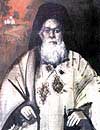 Vladicin Han is first mentioned before 120 years and got its name from a lonely house – “Han”, which had been built by Stefan Grk and later bought by The Bishop Pajsije. Out of this house , some houses in the village Kalimance and from the new settlers in 1887 the small settlement was created that continued to developed independently under the name of Vladicin Han.
Vladicin Han is first mentioned before 120 years and got its name from a lonely house – “Han”, which had been built by Stefan Grk and later bought by The Bishop Pajsije. Out of this house , some houses in the village Kalimance and from the new settlers in 1887 the small settlement was created that continued to developed independently under the name of Vladicin Han.
Vladicin Han is laying at the mouth of two rivers – Vrla and Kalimanka into The South Morava. The richness of the water surrounding gives the town an excellent position for the future development and Vladicin Han had been promoted into a town of promising future in 1921. Vladicin Han started to be the centre of human migration in the area as well as the centre of trade, traffic, political organizations, various institutions and the centre of cultural and sport’s life.
The launch of Vladicin Han as an independent settlement starts its development – its population grows; in 1888 the first school started to work; the settlement had acquired its first temple in 1905, The Temple of Saint Nikola in Prekodolce. In 1910 the first iron bridge started to operate and replaced the old ones made out of wood. The same iron bridge is still standing proud.
Vladicin Han had the all provisions (roads and railways, bridges) for development of trade that is old as the settlement. The saml shops are open on the both sides of the river where is possible to buy anything you want, the town was exporting and importing. Exporting fruits, dairy products, potato, cattle, etc… using the trains. On the other hand importing rye, corn, etc.
Trade were done by cash and by exchanging the goods. For the expansion of their market the fairs had the great influence same as the market days. The biggest fair is taking place every year from 11th to 13th September and the market days are every Friday. That happens to be a tradition because they manage to survive all this years. The area fro the market day is still on the same location as it’s been 100 years ago – between the railway and the river bed. Parallel with trade the craftsmanship started to evolve. At the end of 19th century The Craftsman Centre is established between the railway and the bed of Kalimanka River. In that centre it was possible to find crafts such as barbers, butchers, tinsmiths, bakers, photographers, grocers, shoe-makers and tailors.
Together with all these crafts there were common a lot of other crafts that were necessary for a normal living to inhabitants of Vladicin Han municipality and many of them are still thriving.
Despite environment fitting to a diverse agricultural production a small number of people were doing jobs connected with it because that every household were engaged in trade or crafts which were more profitable. Agricultural producers were mostly working with fruits and cattle but less with vegetables, wine and production of tobacco. In Vladicin Han tobacco started to be produced in 1921 leading to the central gathering and manufacturing office for tobacco opened in late 40s of the previous century.
The town had got its first factory – the brick factory “Balkan” that was selling its products on domestic market, mainly Kosovo. This factory today exist, produces and sells its goods so it’s one of the major developers in the newest history of Vladicin Han. The town was quickly developing itself and the crossing of many important traffic paths and the huge people migration towards him had influenced the mixture of various habits from its citizens. The village tradition were practiced at almost any occasion - during the agricultural work; the weddings; at deliveries; in the churches; funerals or during some big religious celebration. Some of those customs are still thriving amongst inhabitants of this town. Dress code and behavior of people depended of the situation and classes. Craftsmen, traders and intellectuals were wearing coats, trousers and shoes while villagers were dressed in distinguished manner. The village costumes were very divers in Vladicin Han – differentiated from family to family that certain families were wearing the costume unique to their village. All of it was handmade.
Today is difficult to find a woman who does handmade traditional clothing and if they be to found they are elder women. This and other customs are slowly vanishing and can be understandable taking in count the dynamics through which Vladicin Han is going. The town grew to be a modern place. It was a very strong industrial, cultural, medical and urban development of Vladicin Han especially after the world war two.